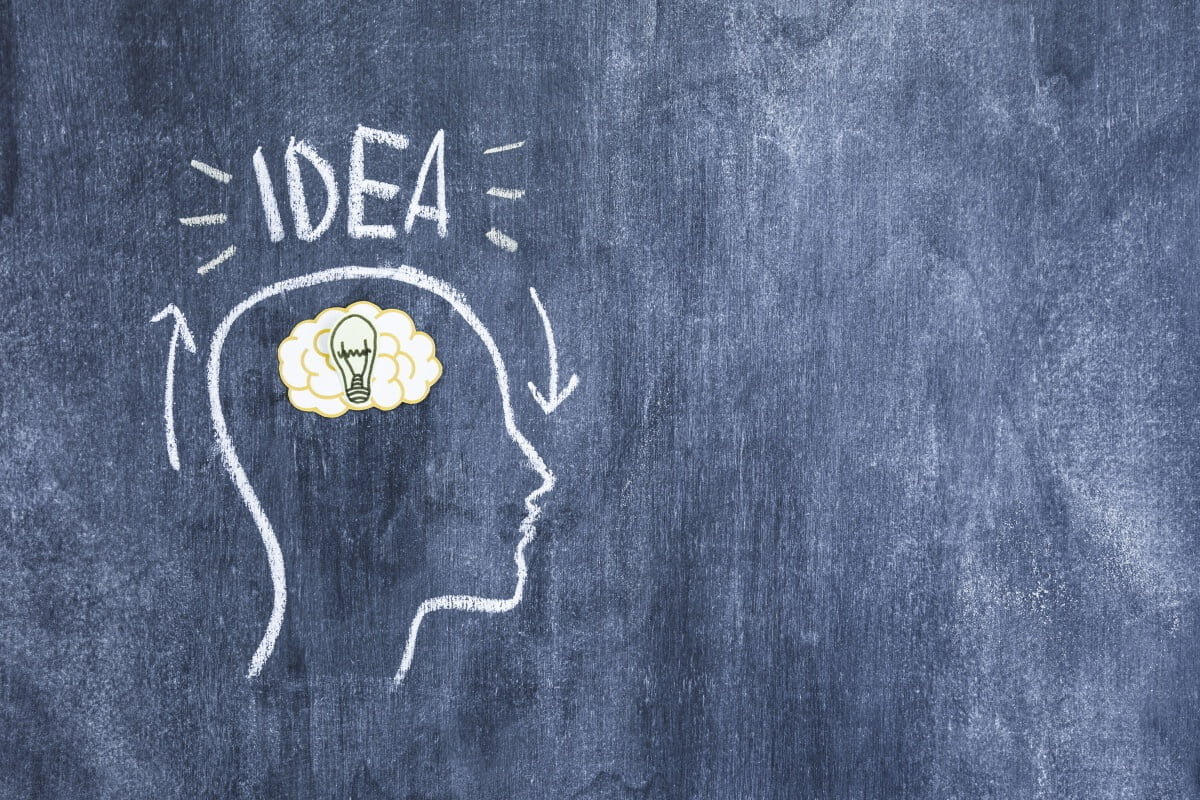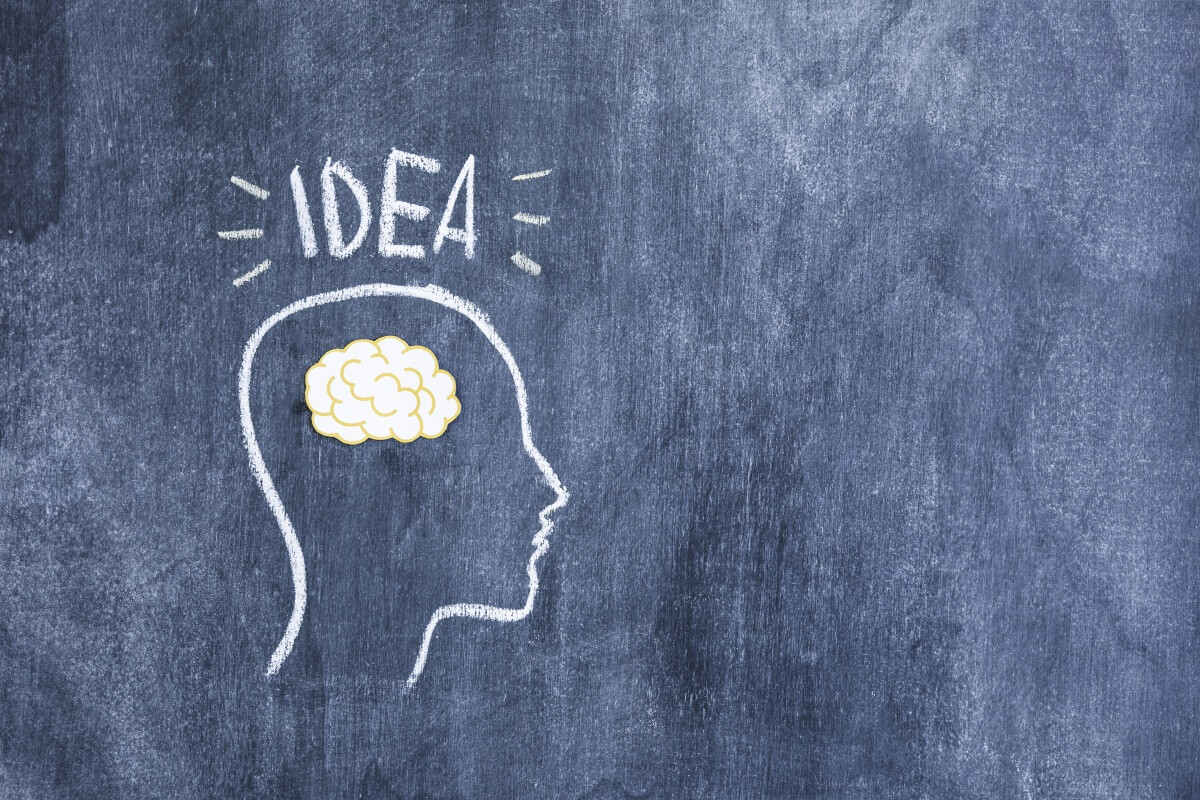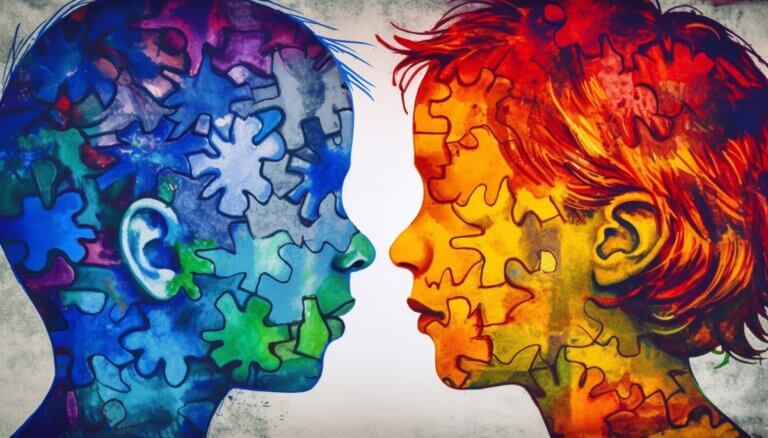Table of Contents
The Importance of Emotional Intelligence for Mental Health

Self-awareness and Self-reflection
Emotional intelligence and mental health are closely linked. At its core is the ability to recognize and understand one’s own emotions. What does this mean specifically? Imagine a colleague vehemently criticizing your work. Instead of reacting with anger, you use your self-awareness to recognize that your annoyance actually stems from a deeply rooted insecurity. With this insight, you can constructively address the criticism and thus preserve your mental stability.
Techniques to Enhance Self-Awareness
There are various methods to explore one’s emotional experiences:
- Journal writing: Record your feelings and the corresponding situations daily to identify patterns in your emotional responses.
- Mindfulness practice: Exercises like meditation enhance awareness of the current emotional state.
- Seeking feedback: Ask people you trust for feedback on your emotional expression and reactions.
Emotional Well-being in Everyday Life
Improved self-awareness has direct effects on your emotional well-being. For example, Anna noticed through reflection that she became particularly nervous at work meetings. By recognizing this emotion, she was able to apply targeted relaxation techniques and significantly reduce her nervousness. Peter, on the other hand, realized that his irritability after a long workday often stemmed from fatigue. By ensuring he got enough sleep, he was able to improve his mood and thus his emotional intelligence in mental health significantly.
Continual engagement with one’s inner life is not only beneficial for the individual. In the social environment, whether private or professional, emotional intelligence and mental health can contribute to a more balanced atmosphere. Ultimately, the ability to understand and regulate oneself leads to a more fulfilling and healthier life.
Emotion Regulation and Stress Management
The ability to regulate emotions is crucial for mental well-being and stress management. Emotional intelligence in mental health is manifested through the conscious handling of feelings, which in turn strengthens mental stability. In stressful situations, whether at work or in personal relationships, constructive management of emotions is essential to prevent being overwhelmed by them.
The Role of Emotional Intelligence in Professional Life
Imagine a project manager facing a tight deadline. The situation is highly tense, and the team feels the pressure. Emotionally intelligent people, like this manager, use their ability to recognize and regulate emotions to remain calm. They take deep breaths, identify the onset of panic, and channel it into constructive avenues. Through this self-regulation, the manager remains effective and can lead the team efficiently.
- Techniques such as deep breathing and mindfulness exercises help stabilize their emotional state.
- Communication is another key: They encourage team members to openly discuss concerns, which counteracts shared stress.
- They show empathy and understanding, which calms the team and maintains a productive atmosphere.
Emotion Regulation in Personal Relationships
Emotional intelligence and mental health also play a crucial role in personal relationships. Conflicting discussions with partners or friends can quickly turn into emotionally charged debates. Here, emotional well-being is demonstrated by curbing one’s reactivity and calmly responding to others.
- Active listening makes the partner feel understood, which can reduce aggression.
- Expressing one’s own feelings without accusation helps avoid misunderstandings and maintain one’s mental stability.
- Emotion regulation techniques such as taking a timeout before an argument escalates contribute to de-escalation.
The practical application of Emotional Intelligence and Mental Health concepts can thus lead to increased resilience and better handling of stressful situations. It is a lifelong process to understand one’s emotions and regulate them in a way that supports well-being rather than detracting from it. Emotional intelligence enables us to keep a cool head even in turbulent times and promote mental health.
Emotional Intelligence in Interpersonal Context

Emotional Intelligence in Interpersonal Contexts
Emotional intelligence, a term often mentioned in the context of personal success and mental health, is a treasure we all carry within us, yet not everyone has learned to unlock it. But what is the secret behind emotional intelligence, and how does empathy manifest in our relationships?
The Heart of Emotional Intelligence: Empathy
Empathy, the ability to put oneself in the feelings of others, is the foundation of emotional intelligence and mental health. This empathy contributes significantly to emotional well-being, as it allows us to build and maintain deeper connections with other people. Emotional intelligence and mental health are closely linked, as they demonstrate ways in which we can constructively deal with our own feelings and those of others.
- Example Family: Imagine a mother who notices her child is quieter than usual. Her empathetic perception allows her to see deeper. She inquires and learns that her child was teased at school. Here, emotional intelligence is clear in mental health – it supports, aids in problem-solving, and strengthens family ties.
- Example Friends: A close friend is mourning the loss of a loved one. In this case, empathy means being present, listening, perhaps even enduring silence. Thus, mental stability is promoted through emotional support and understanding.
- Example Workplace: A colleague is overwhelmed with the workload. Empathetic colleagues and supervisors can recognize this and offer support. This creates an environment of respect and care, which can ultimately boost work morale and productivity.
Empathy as a Bridge to Strong Social Relationships
In all these examples, empathy ensures a deeper human connection, which in turn lays the foundation for mental health. Emotional intelligence and mental health are thus mutually dependent. Empathy allows us not to go through life emotionally insensitive or self-fulfilled, but to genuinely share in the world and the people around us.
Emotional intelligence and mental health are components of a cycle that promotes emotional balance and interpersonal understanding. The better we are at practicing empathy, the more robust this cycle becomes, and the more stable our relationships develop, which in turn strengthens our emotional well-being. Thus, the significance of an often inconspicuous, but powerful aspect of emotional intelligence is revealed – a true key to emotional balance and interpersonal harmony.
Social Skills and Conflict Resolution
Emotional intelligence and mental health are crucial for not only surviving but also thriving in a world that is constantly changing and presenting challenges. They play a fundamental role in handling interpersonal conflicts. But how does emotional intelligence contribute to conflict resolution? And how can we improve these skills to lead more harmonious relationships, whether in teams or partnerships?
Recognition and Management of Emotions
A central aspect of emotional intelligence is the ability to recognize and correctly interpret one’s own emotions and those of others. Imagine a colleague reacting irritably during a meeting. Instead of retaliating, emotional intelligence allows you to understand the underlying reasons and respond empathetically. This competency promotes the emotional well-being of all involved and prevents escalation.
- Effective communication: Active listening and articulating one’s own feelings reduce misunderstandings.
- Empathy: Adopting the perspective of the other allows for a deeper understanding of their emotions.
- Self-regulation: Remaining calm even in heated moments shows maturity and favors rational dialogue.
Constructive Handling of Discrepancies
Conflicts are normal. They even offer the chance for growth and improvement. The key is not to win, but to find solutions together. Emotional intelligence in mental health means that people who possess high emotional intelligence tend to seek compromises that reflect the needs of all.
- Recognition of different viewpoints: Valuing other opinions expands one’s own perspective.
- De-escalation: Techniques like deep breathing or taking breaks can cool down heated debates.
- Focus on the solution: Instead of assigning blame, emotionally intelligent people concentrate on moving forward.
Practical Application in Partnerships
In personal relationships like partnerships, mental stability is essential to overcome common challenges. Specifically, this means:
- Open exchange: Instead of suppressing emotions, partners should learn to communicate openly and honestly.
- Defining shared goals: Setting common goals can provide a direction that suits both partners.
- Appreciation and respect: These form the foundation on which a fruitful confrontation is possible.
By specifically promoting emotional intelligence and mental health, conflicts can not only be avoided or alleviated but can be directed into constructive channels. Whether in the workplace, friendships, or love – emotional intelligence is the key to harmonious and resilient relationships.
Summary
The connection between emotional intelligence and mental health is central to understanding emotional stability and well-being in everyday life. The core ability to recognize and regulate one’s emotions is crucial for dealing with stressful situations and interpersonal interactions. Instead of following criticism with impulsive and possibly destructive reactions, people with high emotional intelligence can look behind their feelings and respond constructively. This not only protects one’s own psyche but also improves relationships with others.
Methods to Strengthen Emotional Well-being
The development of emotional intelligence is a continuous process that can be supported by various practices:
- Keeping a journal helps identify emotional patterns and develop a better understanding of one’s emotional responses.
- Through mindfulness exercises like meditation, one can learn to perceive and accept the current emotional state.
- By obtaining feedback from trusted individuals, one can learn more about their own emotional expression.
Emotional Intelligence in the Social Environment
High emotional intelligence not only promotes psychological stability but also the quality of our social relationships. For example, a project manager with this competence can effectively lead a team and de-escalate stressful situations even under pressure. Techniques such as deep breathing, mindfulness exercises, and empathetic communication help maintain a productive atmosphere.
Empathy, as a part of emotional intelligence and mental health, plays a fundamental role. By empathizing with others, we contribute to mutual understanding and strengthen the bond in personal relationships, which in turn increases emotional well-being and supports mental health.
In the context of personal partnerships, emotional intelligence enables a more constructive handling of conflicts. Recognizing different viewpoints, de-escalating emotional pressure, and focusing on solution approaches are key factors for harmonious relationships.
The practical application of emotional intelligence contributes to increased resilience and improved handling of everyday challenges. The ability to appropriately regulate emotions and practice empathy is of invaluable worth – it is a key to a healthy emotional balance and genuine interpersonal harmony.
FAQ – Emotional Intelligence and Mental Health
How does high emotional intelligence affect handling stress and conflict situations?
High emotional intelligence enables individuals to better understand and regulate both their own emotions and those of others, leading to more effective coping strategies in situations of stress and conflict. They tend to approach conflicts constructively by showing empathy and actively listening, which can lead to a de-escalating effect. Moreover, this ability allows them to keep a cool head under pressure, which helps in making considered and well-thought-out decisions.
How does high emotional intelligence affect the management of stress and its impact on mental health?
People with high emotional intelligence are better able to manage stress as they recognize, understand, and regulate their own emotions. They employ strategies such as positive self-talk, shifting perspectives, and problem-solving to mitigate stress responses and protect their mental health. As a result, they are often able to emerge stronger from challenging situations and avoid long-term negative impacts on their well-being.
How can emotional intelligence contribute to managing stress and thereby improve mental health?
Emotional intelligence is like an anchor in stormy seas of feelings; it enables us to recognize, understand, and respond appropriately to stress. By consciously perceiving and regulating our emotions, we can signal a need for support, seek help, and implement constructive coping strategies. This leads to a more composed attitude towards challenges, which strengthens our psychological resilience and contributes to a more balanced, healthier emotional life.




